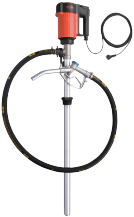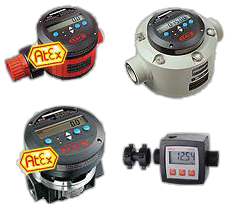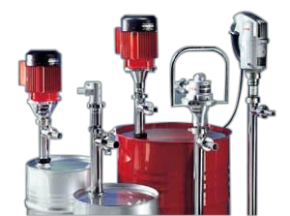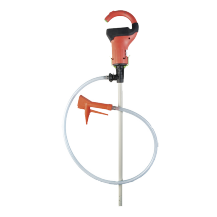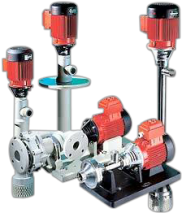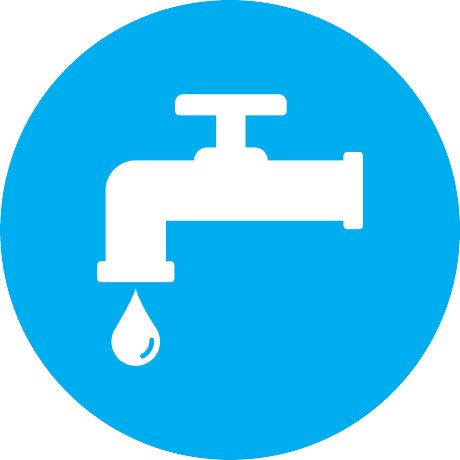Drum pumps are used to transfer fluids from one container to another in industrial applications. They work by utilizing a rotating impeller to move fluids and can handle high viscosity fluids, as well as fluids with solids and particulates. There are several advantages associated with the use of drum pumps including versatility, consistency, efficiency, safety, durability, and ease of use. Drum pumps are used in various industries such as chemical, food, pharmaceutical, automotive, and agriculture. When selecting drum pumps for specific applications, important considerations include the compatibility of the materials with the fluid being pumped, the flow rate required, and the mechanism used for pumping.



Drum Pumps
7 series from 1 manufacturers
The operating principles of drum pumps
Drum pumps are typically used to transfer fluids from a container, such as a drum, into another container or process.
The drum pump works by utilizing a rotating impeller or stator and helical rotor to move fluids. The pump is typically constructed with a tube that is inserted into the drum or container holding the fluid. The impeller is positioned at the bottom of the tube and is powered by an electric or air motor. As the impeller rotates, it creates a flow of fluid through the tube and out of the pump.
One advantage of drum pumps with stator and helical rotor is their ability to handle fluids with high viscosity, such as oils or syrups. The impeller design provides a consistent and smooth flow of fluid, which is important in many applications.
To operate a drum pump, the pump is placed into the drum or container holding the fluid to be transferred. The impeller is then activated using the motor, which rotates the impeller and creates a flow of fluid through the tube. The fluid can then be directed to another container or process using a hose or other piping.
Advantages of drum pumps
Drum pumps are widely used in industrial applications for the transfer of various types of fluids, ranging from low viscosity liquids to highly viscous materials, such as oils, chemicals, and food products. There are several advantages associated with the use of drum pumps which include:
- Versatility: Drum pumps can handle a wide range of fluids, including high viscosity fluids, solvents, acids, alkalis, and slurries.
- Consistency: Drum pumps provide a consistent flow of fluid, which is important in many applications, such as chemical dosing and filling. This consistent flow also helps to reduce the risk of spills and leaks. The pump can also be fitted with dripless nozzles and/or pistol grip to prevent leaks and spills.
- Safety: Drum pumps are designed with safety in mind. They typically have built-in safety features, such as automatic shut-off valves and grounding wires, to prevent accidents and protect workers from harm.
- Ease of use: Drum pumps are relatively easy to use and require minimal maintenance. They are also portable and can be easily moved from one location to another.
Industries and applications that use drum pumps
The process industry involves various manufacturing and production activities that require specialized equipment to carry out complex chemical, mechanical, and physical processes. Among the equipment used in this industry, the drum pump is an easy and useful tool, found in numerous applications.
Chemical Industry
In the chemical industry, drum pumps are used to safely transfer aggressive chemicals, such as acids and alkalis, from drums to storage tanks or process equipment. Chemical drum pumps typically feature an impeller and a tube made of PVDF or other corrosion-resistant materials. Depending on the specific application, a chemical drum pump can transfer up to 800 liters per minute.
Food Industry
Drum pumps are also used in the food industry to transfer viscous food products, such as syrups and sauces, from drums to mixing tanks or processing equipment. Food-grade drum pumps typically have a tube made of FDA-approved materials, such as stainless steel or polypropylene, and may feature a stator and helical rotor or other mechanism to handle high-viscosity fluids. Depending on the specific application, a food-grade drum pump can transfer up to 300 liters per hour.
Automotive Industry
Drum pumps are commonly used in the automotive industry to transfer oils, and coolants from drums to engine parts and other equipment. Automotive drum pumps typically feature a rotary vane mechanism or other pumping mechanism to handle the high viscosity fluids commonly used in this industry. The tube material may be steel or plastic, depending on the specific fluid being transferred. Depending on the specific application, an automotive drum pump can transfer up to 100 liters per minute.
Agriculture Industry
Finally, in the agriculture industry, drum pumps are used to transfer fertilizers, pesticides, and herbicides from drums to sprayers and other equipment. Agriculture drum pumps may feature a stator and helical rotor or other mechanism to handle the high viscosity fluids commonly used in this industry. The tube material may be PVC or polyethylene, depending on the specific fluid being transferred. Depending on the specific application, an agriculture drum pump can transfer up to 80 liters per minute.
Important considerations when selecting drum pumps
When selecting drum pumps for specific applications, there are several important considerations to consider ensuring efficient and safe operation. Some of these considerations include:
- Chemical Compatibility: One of the most important considerations when selecting a drum pump is chemical compatibility. Different materials and pumping mechanisms are suitable for different types of fluids, so it's important to choose a pump that is designed to handle the specific fluid being transferred. For example, some fluids may be corrosive, abrasive, or highly viscous, which can require a specialized pump design or material.
- Flow Rate: Another important consideration when selecting a drum pump is the required flow rate. Depending on the application, a pump may need to transfer fluid quickly or slowly. Pump flow rate is typically measured in liters per minute or liters per hour and can vary depending on factors such as pump size, tube diameter, and pumping mechanism.
- Tube Material: The tube material is also an important consideration when selecting a drum pump. Different tube materials may be required for different types of fluids or for hygienic reasons in food or pharmaceutical applications. Common tube materials include stainless steel, polypropylene, PVDF and PVC.
- Pump Head: The required pump head is an important consideration when selecting a drum pump. The pump head is the maximum height that the pump can lift fluid and can be affected by factors such as fluid viscosity and tube diameter. It's important to choose a pump with a high enough pump head to meet the specific application's requirements.
- Regulatory compliance: Depending on the industry and application, regulatory compliance may be necessary. It is important to select a drum pump that meets the relevant regulations and standards, such as FDA or CE certification, to ensure safe and legal operation.
Why buy drum pumps from AxFlow?
AxFlow provides drum pumps that cater to an extensive variety of industries and applications. Exclusive to AxFlow, you will be provided with personalized recommendations from highly experienced process engineers and access to the most prominent process technology manufacturers that are independent of the manufacturer. If you require assistance in selecting the appropriate pumps that satisfy your requirements, feel free to contact AxFlow without any delay. AxFlows engineers and specialists can help with the selection process, specifications, installation, and maintenance of your fluid handling equipment.
